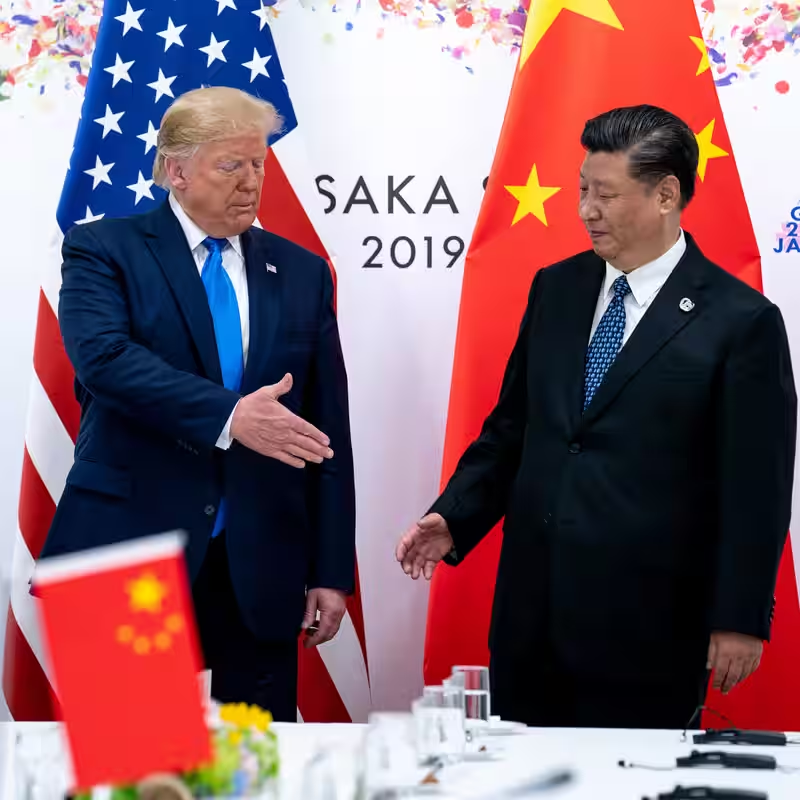Table of Contents
- Trade Tensions Escalate Amid Rare Earth Controls
- Why China Chose This Moment to Act
- Trump’s Aggressive Countermove
- Global Markets and Allies React
- What’s Next in the U.S.-China Standoff?
- Sources
U.S.-China Trade War Flares Up Again
In a dramatic escalation of economic hostilities, the United States and China have renewed their high-stakes game of chicken—this time centered on rare earth minerals, critical to everything from smartphones to fighter jets. The latest flashpoint began when Beijing tightened export controls on these strategic materials, prompting an immediate and fiery response from former President Donald Trump, who threatened 100% tariffs on Chinese goods.
The move has reignited fears of a full-blown trade war just as global supply chains were beginning to stabilize post-pandemic.
Why China Chose This Moment to Act
Analysts say China’s timing is no accident. With a crucial Communist Party leadership meeting on the horizon, President Xi Jinping faces intense pressure to project strength both domestically and internationally. Restricting access to rare earths—a sector where China controls over 80% of global processing capacity—sends a clear message: Beijing still holds powerful economic levers.
“This isn’t just about trade,” said Dr. Emily Feng, a senior fellow at the Brookings Institution. “It’s about signaling resolve ahead of internal party dynamics. Xi needs to show he’s not backing down from U.S. pressure.”
China’s new export controls specifically target materials used in defense, electric vehicles, and renewable energy tech—sectors where the U.S. remains heavily dependent on Chinese supply.
Rare Earth Elements: Why They Matter
| Element | Key Uses | China’s Global Share (Processing) |
|---|---|---|
| Neodymium | High-strength magnets (EVs, wind turbines) | ~85% |
| Dysprosium | Heat-resistant magnets (military, aerospace) | ~90% |
| Lanthanum | Batteries, catalysts | ~75% |
| Yttrium | LEDs, superconductors | ~80% |
Trump’s Aggressive Countermove
Donald Trump, positioning himself as a potential 2028 presidential candidate, wasted no time responding. “If China thinks they can choke our tech and defense industries with rare earths, they’ve got another thing coming,” he declared at a rally in Ohio.
His proposed 100% tariffs on a wide range of Chinese imports—including electronics, steel, and even cooking oil—have stunned economists. Days later, the Trump campaign floated the idea of banning U.S. purchases of Chinese cooking oil altogether, a symbolic but economically minor jab that nonetheless signaled escalating rhetoric.
Beijing retaliated swiftly, adding five U.S.-owned subsidiaries of a South Korean shipping firm to its sanctions list—a move seen as targeting American logistical interests indirectly.
Global Markets and Allies React
European governments and multinational corporations are watching with alarm. The EU, which relies on Chinese rare earths for its green energy transition, has urged both sides to de-escalate. “We cannot afford another trade shock,” said European Commission President Ursula von der Leyen in a statement.
Stock markets wobbled on the news. The S&P 500 dropped 1.2% in a single session, while semiconductor stocks—highly sensitive to rare earth supply—saw sharper declines.
What’s Next in the U.S.-China Standoff?
While neither side appears ready to back down, experts warn that prolonged confrontation could destabilize global tech and energy sectors. The U.S. is accelerating efforts to build domestic rare earth processing capacity, but that will take years.
For now, the world watches as two superpowers play a dangerous game of economic brinkmanship—one where the stakes include not just profits, but national security and geopolitical influence.




